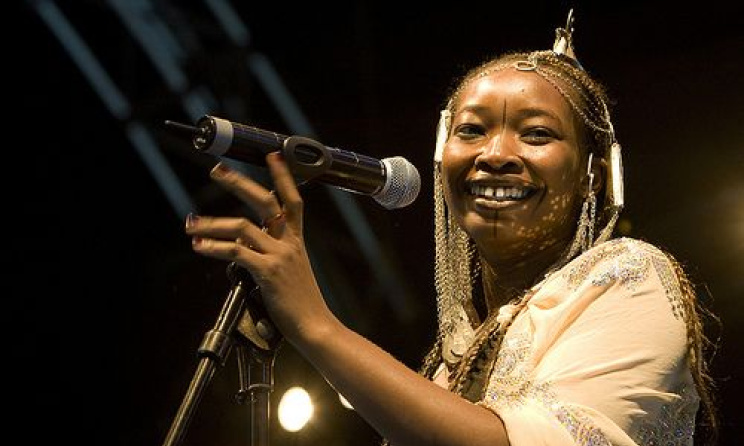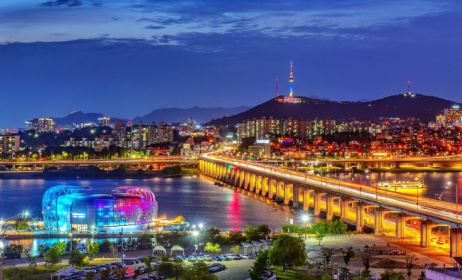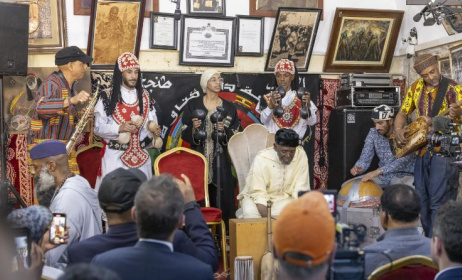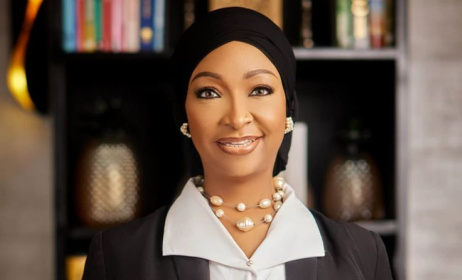Cultural policy in Chad
Chad has a cultural policy is defined in a document approved by a presidential decree. This article presents an overview of this policy and the difficulties encountered during its implementation.
 Mounira Mitchala. Photo: globedia.com
Mounira Mitchala. Photo: globedia.com
The Policy
UNESCO defines culture as “the set of distinctive spiritual, material, intellectual and emotional features of society or a social group, that encompasses, not only art and literature, but lifestyles, ways of living together, value systems, traditions and beliefs” (UNESCO, 2001). In view of this definition, Chad has put in place a cultural policy, approved by the decree n°408/PR/PM/MC/2012 and part of the framework document.
The framework document is essentially a guideline and presents the arts and culture policies. It highlights the key points of the cultural policy in Chad, such as the promotion of literary and artistic creation, the coordination and distribution of artistic and cultural production, the management of museums, film production, cultural and international exchange and quality control of artistic and cultural production.
The Decree No. 89/PR/PM/2011 dated 31 August 2011 states in article 42, that the Ministry of Culture is in charge of the vision, coordination, implementation and monitoring of the governmental cultural policy. The Ministry of Culture is therefore responsible for enforcing the cultural policy in Chad and must ensure its implementation by musicians, writers, painters, sculptors, filmmakers, contractors, etc.
Challenges
There are several challenges that hinder the implementation of the cultural policy in Chad. The lack of expertise and financial means puts a brake on the development of cultural industries as defined in the framework document. While many companies (television, radio, publishing houses, etc.) have been set up, entrepreneurs do not always have the necessary skill to manage their businesses. Funding is difficult to find. Indeed, the banks do not lend to small businesses, because they believe that they do not offer sufficient sureties.
The professionalization of creative arts is another important component. However, there is a lack of training programs aimed at musicians, painters, designers, filmmakers, etc. Cultural activities are left in the hands of foreign institutions, such as the French Institute, as well as local organizations such as the Don Bosco center and the Al-Mouna Cultural Center.
Chadian authorities provide little support (infrastructure and financial) to the cultural activities organized in the country.
Regarding the protection of intellectual works, the framework document encourages the Chadian Office of Copyright (BUTDRA) to ensure the protection of artistic works, the collection and redistribution of royalties. Artists often accuse the collective management authorities of delaying the payment of their fees. The BUTDRA, which is obliged to inform the artists on the matter, ignores the issue. Outreach campaigns on authors’ rights could help to address this issue.
Recommendations
It is important for the Chadian Government to put substantial resources at the disposal of the Ministry of Culture for the implementation of the cultural policy, which will contribute to the development of the cultural sector in Chad.
Sources
- Document Cadre de Politique de Développement Culturel et Artistique au Tchad, 2012
- Publication : « Les politiques culturelles au pays des Sao1 » : Entre raffermissement et perspective.
- Publication : « Motifs limitant l’action des États dans le développement des politiques et des programmes culturels », CECAC 2012, diversité Tchad.
- www.unesco.org



































Comments
Log in or register to post comments